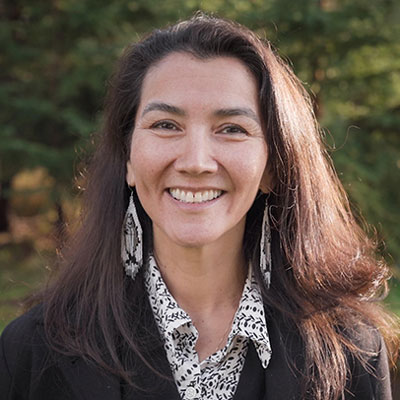Native Vote 2024. The Alaska Federation of Natives (AFN) has expressed serious concern over comments made by Alaska House Speaker Cathy Tilton (Republican) during a recent radio interview, where she stated that repealing the witness signature requirement for absentee ballots “leaned the election towards Mary Peltola, to be quite honest.” AFN believes these remarks raise alarming questions about efforts within the State House to potentially disenfranchise voters in order to influence the outcome of elections.

AFN has long championed voting rights and the "Get Out the Native Vote" (GOTNV) initiative, working to reduce barriers to voting, particularly for rural Alaskans. Rural regions of the state consistently experience higher rates of absentee ballot rejection. During the 2022 primary election, 13.74% of absentee ballots from rural Alaska were rejected—about 1 in 8—compared to the statewide average of 4.55%. In the Yukon-Kuskokwim Villages, 17% of ballots were rejected, and nearly two-thirds of those rejections were due to the lack of a witness signature—a requirement that the Alaska Division of Elections has admitted is not actually verified.
“It is important to ensure that laws affecting Alaskans’ right to vote are fair and non-partisan. Protecting the constitutional right to vote is a responsibility that all legislators share, regardless of their affiliations, and they should work to uphold this right for all Alaskans,” Joe Nelson, AFN Co-Chair said.
In the 2024 legislative session, the Alaska State Senate passed a voting reform bill that would have eliminated the witness signature requirement. However, the State House, in a 20-20 deadlock, refused to advance the bill.
Ana Hoffman, AFN Co-Chair, reiterated the community's concerns: "The Alaska Native community has long called for improvements to our election system due to persistent barriers in rural Alaska. Rather than contributing to voter disenfranchisement, the legislature should be working toward much-needed reforms.”
AFN also highlighted broader challenges, such as limited polling locations in remote villages, the need for language assistance, and the lack of postal services in many roadless precincts. Despite multiple legislative efforts, including proposals in HB129 during the last session, these issues remain unresolved.
“It is imperative that we work towards creating a fair and inclusive electoral process that upholds the rights of all Alaskans to participate in shaping the future of our state,” said AFN President Benjamin Mallott. “Voting reforms are necessary to ensure a fair and inclusive electoral process, and we are hopeful that we can make meaningful progress toward that goal with the Alaska Legislature in this next session.”
AFN remains committed to collaborating with Lt. Governor Nancy Dahlstrom and other leaders to address the disenfranchisement of Alaska Native voters before the next election. The organization calls on the Alaska State Legislature to pass a bill that removes the witness signature requirement, allows for ballot curing, and implements other vital reforms to ensure that every Alaskan's vote is counted and their voice heard.
More Stories Like This
Native News Weekly (August 25, 2024): D.C. BriefsUS Presidents in Their Own Words Concerning American Indians
Haaland Meets with Southern New Mexico Law Enforcement on Public Safety Priorities
This Day in History – Dec. 26, 1862: 38 Dakota Men Executed by Order of Abraham Lincoln
Merry Christmas 2025
Help us defend tribal sovereignty.
At Native News Online, our mission is rooted in telling the stories that strengthen sovereignty and uplift Indigenous voices — not just at year’s end, but every single day.
Because of your generosity last year, we were able to keep our reporters on the ground in tribal communities, at national gatherings and in the halls of Congress — covering the issues that matter most to Indian Country: sovereignty, culture, education, health and economic opportunity.
That support sustained us through a tough year in 2025. Now, as we look to the year ahead, we need your help right now to ensure warrior journalism remains strong — reporting that defends tribal sovereignty, amplifies Native truth, and holds power accountable.
 The stakes couldn't be higher. Your support keeps Native voices heard, Native stories told and Native sovereignty defended.
The stakes couldn't be higher. Your support keeps Native voices heard, Native stories told and Native sovereignty defended.
Stand with Warrior Journalism today.
Levi Rickert (Potawatomi), Editor & Publisher


